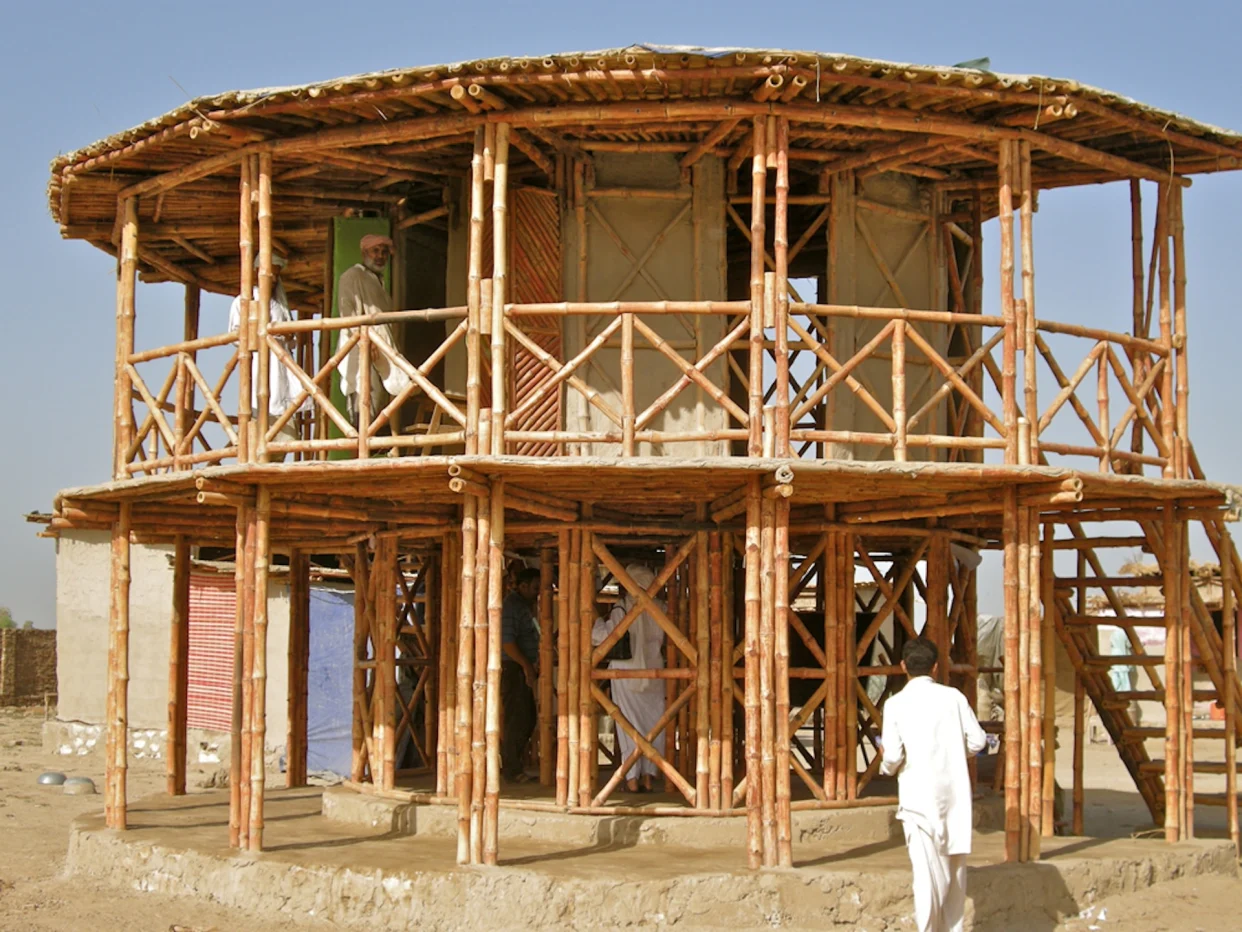Architect Yasmeen Lari Crafts Flood-Proof Homes With Low-Tech, Natural Elegance At Just $88
One standout figure in this movement is Yasmeen Lari, a Pakistani architect and founder of the Heritage Foundation of Pakistan. Architect Yasmeen Lari crafts flood-proof homes with low-tech, natural elegance at just $88.
Author:George EvansJan 08, 202444.6K Shares731.7K Views

As the frequency and intensity of extreme weather events rise, architects around the world are redefining design principles to create homes that stand resilient against nature's fury.
One standout figure in this movement is Yasmeen Lari, a Pakistani architect and founder of the Heritage Foundation of Pakistan. Architect Yasmeen Lari crafts flood-proof homes with low-tech, natural elegance at just $88.
Lari has ingeniously harnessed the power of bamboo to construct versatile and affordable shelters, particularly beneficial in addressing the vulnerability of communities to floods.
Bamboo - A Surprising Solution
Despite bamboo not being a traditional building material in Pakistan, Yasmeen Lari recognized its potential as an ideal construction resource for prefabricated structures.
Not only does bamboo offer cost-effective and rapid building solutions, but it also presents environmental advantages.
With a growth cycle as short as three years, bamboo outpaces timber and, as a grass species, contributes to carbon absorption, promoting air cleanliness and climate cooling.
Over the past year, the Heritage Foundation of Pakistan, under Lari's guidance, has successfully erected over 5,000 prefabricated bamboo huts.
Remarkably, each structure comes at a cost of only 25,000 Pakistani rupees ($88). Lari proudly asserts, "All our work is entirely zero-carbon," emphasizing the efficacy of this low-cost, participatory, and eco-friendly approach that has been successfully scaled to benefit thousands.
Flood Resilience Through Innovative Design
One of the significant advantages of Lari's bamboo huts is their resilience against flooding. Elevated on platforms, these structures are less susceptible to being swept away by floodwaters.
This feature is particularly crucial in Pakistan's Sindh province, where devastating floods displaced 33 million people last year. The architect Liu Kuwei aptly describes bamboo as "natural steel," highlighting its robust and flexible nature.
Crucially, Yasmeen Lari's design empowers flood-affected communities to actively participate in rebuilding their lives.
Using her foundation's free YouTube videos, individuals who have lost their homes to floods can construct these bamboo shelters themselves, fostering self-sufficiency and resilience.
In Lari's vision, this hands-on approach represents a departure from the traditional "international colonial charity model."
Instead of treating people as victims and providing mere handouts, she advocates for sustainable solutions that minimize environmental impact and empower communities to shape their own destinies.
What Do Flood-proof Homes Look Like?
Improved versions of traditional one-room houses in southern Sindh province and Rajasthan state, India, are known as chanwara, or mud huts.
Construction of these homes, constructed from inexpensive, locally sourced materials such as thatching, lime, clay, and bamboo, can be completed for approximately €157, which is a considerable reduction in comparison to houses constructed from cement and brick.
People are given an equal say in the design and comfort during the design process through co-building and co-creation. As demonstrated in the Lahore social housing project of the 1970s, the design process has been shaped by the needs of local women.
Furthermore, conventional stoves have been redesigned to take them off the floor, which eliminates a potential source of unsanitary conditions for children and the transmission of germs.
Lari has been honored with the 2023 Royal Gold Medal by the Royal Institute of British Architects for her commitment to making a positive impact on people's lives through architecture.
Final Words
Architect Yasmeen Lari's innovative use of bamboo as a building material not only addresses the pressing need for resilient housing in the face of extreme weather but also champions affordability and environmental sustainability.
The success of the Heritage Foundation of Pakistan's prefabricated bamboo huts, costing a mere $88 each, showcases the scalability and impact of this approach.
By allowing flood-affected communities to actively participate in rebuilding their homes, Lari's design transcends traditional charity models, emphasizing empowerment, self-sufficiency, and a commitment to a zero-carbon future.

George Evans
Author
George Anderson, an exceptional architectural designer, envisions and brings to life structures that transcend the realm of imagination. With an unwavering passion for design and an innate eye for detail, George seamlessly blends form and function, creating immersive spaces that inspire awe.
Driven by a deep appreciation for the interplay of space, light, and materials, George's innovative approach redefines the possibilities of architectural design. His visionary compositions leave an indelible mark, evoking a sense of wonder and transforming the built environment.
George Anderson's transformative designs and unwavering dedication continue to shape the architectural landscape, pushing the boundaries of what is possible and inspiring generations to come.
Latest Articles
Popular Articles